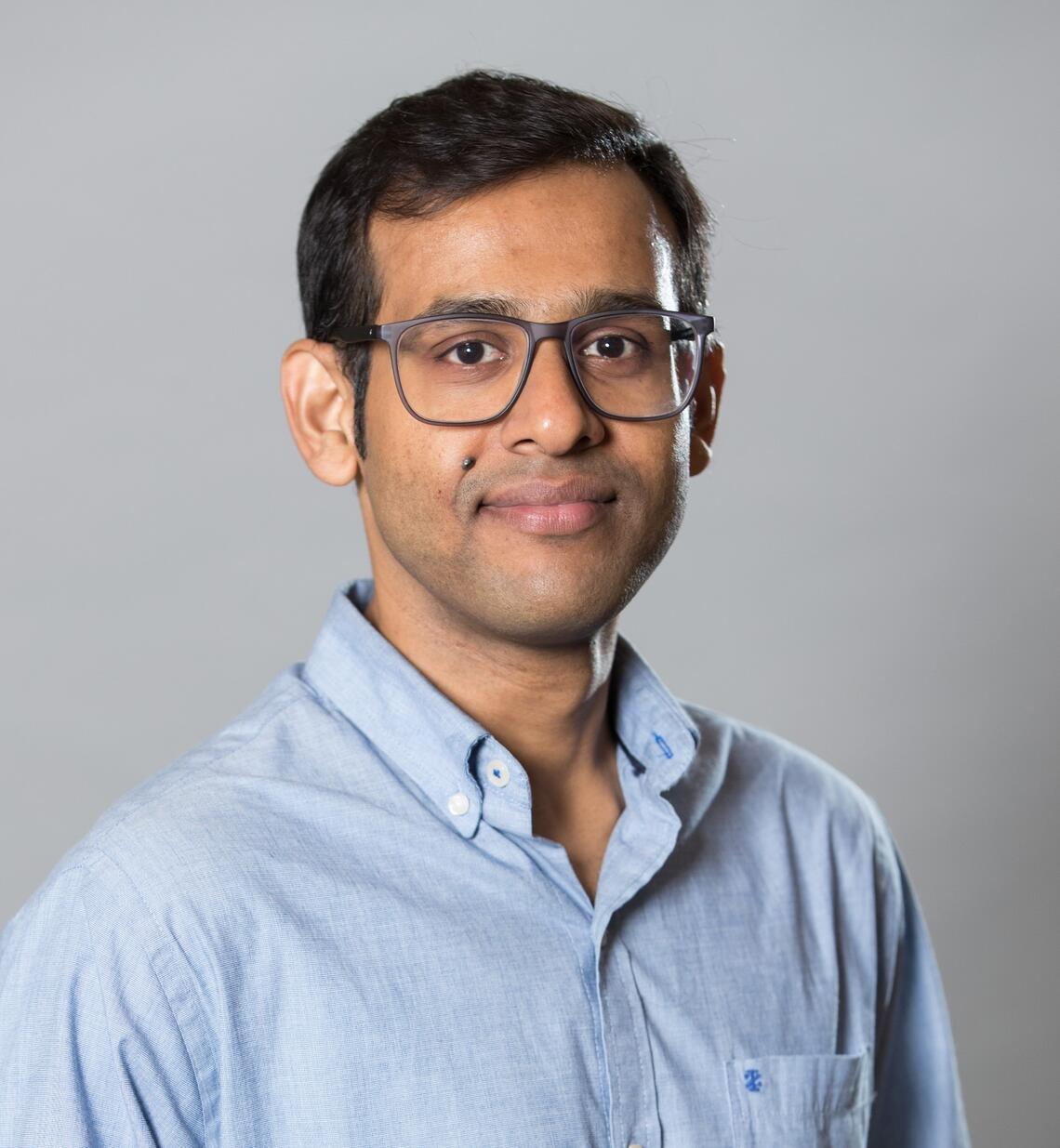Postdoctoral Associates

Dr. Shashwata Ghosh
Dr. Shashwata Ghosh joined the group in 2023. He has a background in the area of chemical process design and analysis. His current research is directed towards the analysis of petrochemical processes and gasification with a focus on decarbonization.
Dr. Adefarati Oloruntoba
Dr. Adefarati Oloruntoba joined our team in 2023 with expertise in low-carbon fuel development and chemical process intensification. He holds a master's degree in Energy and Environment from the University of Leeds, UK, and a doctorate in Power Engineering and Thermophysics from China University of Petroleum Beijing. His background includes five years of research experience at a research institute, where he focused on the valorization of biomass into drop-in fuels and new bio-based products. Currently, he is working on a project that focuses on life cycle assessment of green/bioLNG supply chains across North America and Europe.
Education
- Current post-doc Chemical and Petroleum Engineering (University of Calgary)
- PhD, Power Engineering and Thermophysics (China University of Petroleum)
- M.Sc.: Energy and Environment (University of Leeds)
Selected Publications
- Xiao, H., Oloruntoba, A., Ke, X., Gao, K., Duan, L., Liu, C., ... & Wang, J. (2023). Improving the precision of solids velocity measurement in gas-solid fluidized beds with a hybrid machine learning model. Chemical Engineering Science, 119579. https://doi.org/10.1016/j.ces.2023.119579
- Oloruntoba, A., Zhang, Y., & Li, S. (2023). Performance evaluation of gas maldistribution mitigation via baffle installation: Computational study using ozone decomposition in low-velocity dense fluidized beds. Chemical Engineering Research and Design, 195, 38-53. https://doi.org/10.1016/j.cherd.2023.05.036
- Oloruntoba, A., Zhang, Y., & Hsu, C. S. (2022). State-of-the-art review of fluid catalytic cracking (FCC) catalyst regeneration intensification technologies. Energies, 15(6), 2061. https://doi.org/10.3390/en15062061
- Oloruntoba, A., Zhang, Y., & Xiao, H. (2022). Hydrodynamics-reaction-coupled simulations in a low-scale batch FCC regenerator: Comparison between an annular and a free-bubbling fluidized beds. Powder Technology, 407, 117608. https://doi.org/10.1016/j.powtec.2022.117608
- Yang, Z., Zhang, Y., Oloruntoba, A., & Yue, J. (2021). MP-PIC simulation of the effects of spent catalyst distribution and horizontal baffle in an industrial FCC regenerator. Part I: Effects on hydrodynamics. Chemical Engineering Journal, 412, 128634. https://doi.org/10.1016/j.cej.2021.128634
- Oloruntoba, A., Zhang, Y., & Xiao, H. (2022). Study on effect of gas distributor in fluidized bed reactors by hydrodynamics-reaction-coupled simulations. Chemical Engineering Research and Design, 177, 431-447. https://doi.org/10.1016/j.cherd.2021.10.031
- Oloruntoba, A., Zhang, Y. M., & Mukhtar, Y. M. (2022, October). Effects of Gas Condition and Baffle Installation on Bed Hydrodynamics in FCC Regenerators. In International Petroleum and Petrochemical Technology Conference (pp. 458-476). Singapore: Springer Nature Singapore. https://link.springer.com/chapter/10.1007/978-981-99-2649-7_42
- Oloruntoba, A., & Adekanye, P. K. (2019). Biofuel development in nigeria production and policy challenges. Journal of Energy Research and Reviews, 3(3), 1-21. https://doi.org/10.9734/JENRR/2019/v3i330100
- Xu, C., Zhang, Y., Peng, Y. L., Yang, T., Liu, Z., Qiu, F., ... & Jiang, S. (2023). Degradation characteristics and utilization strategies of a covalent bonded resin-based solid amine during capturing CO2 from flue gas. Separation and Purification Technology, 125621. https://doi.org/10.1016/j.seppur.2023.125621
- Gu, P., Zhang, Y., Du, H., & Oloruntoba, A. (2023). Experimental Study on Back-Flushing Characteristics of an In-Vessel Filtration System in Fischer–Tropsch Slurry Reactors. Industrial & Engineering Chemistry Research, 62(43), 17937-17946. https://doi.org/10.1021/acs.iecr.3c02428
- Oloruntoba, A., & Oladipo, J. T. (2019). Modelling carbon emissions efficiency from UK higher education institutions using data envelopment analysis. Journal of Energy Research and Reviews, 3(3), 1-18. DOI: . https://doi.org/10.9734/JENRR/2019/v3i330097
- Jiang, Q., Olarte, M., Guo, Y., Bradley, S., Zhang, Y., Oloruntoba, A., ... & Song, H. (2022). An environmentally friendly turnkey method to determine pore volume of powdered catalysts. Powder Technology, 407, 117697. https://doi.org/10.1016/j.powtec.2022.117697
-
Contact and Links

